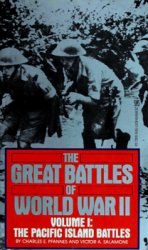In the late 1860s the rise of the Republican party was due both to the weakness of the southern Democrats and to the enfranchisement of black men. African Americans voted solidly Republican—the party of Lincoln—and they exercised their vote diligently. In many elections, black voter turnout approached 90 percent."It is the hardest thing in the world to keep a negro away from the polls,"complained a white Alabama politician.
The power of the black vote in 1870 is demonstrated in the accompanying map. Of the fifteen congressional districts that encompassed the interior counties from Louisiana through South Carolina, it was in the Cotton Belt, where blacks comprised the majority, that Republican candidates won fourteen seats. Throughout the South, Republicans took thirty-one of the fifty-seven seats in the House of Representatives. In the three states where blacks outnumbered whites—South Carolina, Mississippi, and Louisiana— the Republicans won every House seat.
Five blacks were among the Republican victors. With the exception of Josiah Walls, a former slave who had fought with the Union army and represented Florida, all of the blacks were from areas with a substantial black major-ity:three from South Carolina, the other from Alabama.
"Carpetbaggers," Republicans from the North, were also strong in the areas where blacks had a majority, especially Louisiana, Mississippi, and Virginia. Except for the two congressional districts in lower Louisiana, no "carpetbaggers" won House seats where blacks did not constitute a majority of the population.
Republican Party in the South 1871-1873
42nd Congress: elected 1870, served March 1871 to March 1873
Black majority population in 1870 Democrat representative
Republicans:
Black representative Scalawag Carpetbagger

ATLANTIC ' OCEAN
Republicans Win in Deep South The six black members of the House of Representatives in 1871 are from left to right: Benjamin Turner, Robert De Large, Josiah Wells, Jefferson Long, Joseph Rainey, Robert Brown Elliott. Each is linked to his district; the member in the blue coat—center—is not connected to a "black" dot. A special Republican primary replaced him with a scalawag.

Robert Brown Elliott of South Carolina, addresses Congress in 1872.

The Freedmen's Bureau built 4,329 schools, attended by some
250,000 former slaves, in the postwar South. Many of the teachers in these schools were abolitionists or missionaries from New England. The schools drew African Americans of all ages, from children to grandparents, who were eager for the advantages offered by education.
"Scalawags,"white Southerners who endorsed the Republican party, did take some seats in areas with white majorities. Usually these victories were in districts that had been Whig strongholds.




 World History
World History









